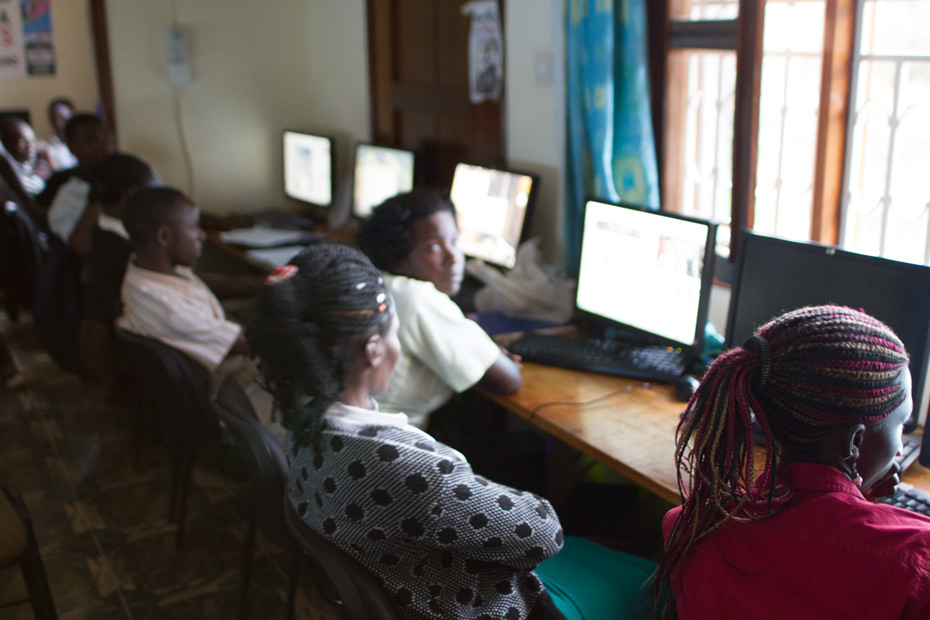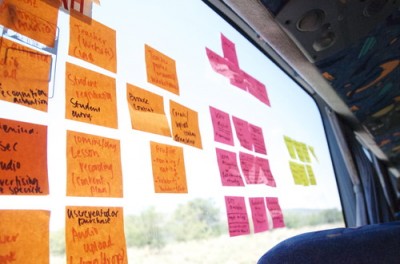
Kampabits students. Photo by AfricaHackTrip (cc by-sa 3.0)
Change is happening in Africa. The continent is booming economically and financially, with a growth rate expected to hit 5.6% in 2013, according to World Bank numbers. The mobile sector alone represented 6,3% of the sub-Saharan African GDP in 2012, as reported by the Wall Street Journal. As the continent slowly aligns itself with the international trail of new technology and digital innovations, it has caught the eye of big names in the industry. Google, Microsoft and IBM are among the biggest names currently launching research centers and initiatives ‘for’ Africa. Consequently, several smaller African organizations tap from these giants to build and enhance their capacities.
The growing African tech scene also daily catches the attention of smaller teams of technology specialists and enthusiasts whose interest in Africa often leads them into adventurous explorations. One of such is AfricaHackTrip. It is a team of European tech enthusiasts who conducted a 5-week journey to survey the East African tech world. The team stopped in Kampala, Kigali, Nairobi and Dar es Salaam, four of Africa’s top ‘iHubs’. The reception of the project was positive in all four locations the AHT team has visited. In Kampala, they visited KampaBits, a school teaching underprivileged youths web design, print design and web development and the students were more than grateful for the ideas and encouragement the AHT team brought to them.

Facebook comment caption from #AHT blog.
A similar venture is the Startup Bus Africa. 15 African and 15 international entrepreneurs engaged in an entrepreneurial road trip to conceive ideas and establish the conditions for their implementation. The bus travelled for the first time in Africa from the 18th till the 22nd of November, from Harare in Zimbabwe to Cape Town, through Johannesburg and Bloemfontein in South Africa. Participants were coders (50%), designers (25%) and business developers (25%) all focused on the areas of mobile, healthcare and energy. One of the many outcomes of the bus trip was the platform Sterio.Me, which engages young rural African learners through a simple, teacher-generated phone-call to reinforce learning outside the classroom. They also pitched to investors along the way.

Who needs a whiteboard when you have post-it notes and a window? Photo by Startup Bus Africa (cc by-sa 3.0)
No doubt Africa’s problems will find solution on African ground and it is very clear that research and development in new technologies will be one of the strongest pillars for development in the continent. But, as the continent becomes (once again) “the next frontier”, much still remains to be done to achieve a successful transfer of technology, namely the consolidation of a technological environment at the social, economic and political levels. The continent has an undeniable potential in high technology but a distinctive framework for Africa’s technological development smoothly integrating both the old and new cultures has yet to be established.




3 comments